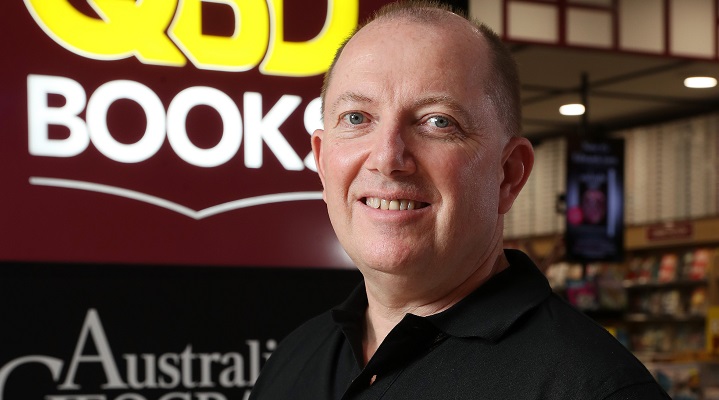Even as Victorian Premier Daniel Andrews has flagged the possibility of lifting some Melbourne restrictions ahead of schedule this week, the chief executives of the country’s biggest bricks-and-mortar bookshops are urging him to go further and classify their stores as an essential service. Both Nick Croydon, CEO of QBD Books, and Mark Newman, CEO of Dymocks, have written letters to the Premier in recent weeks, calling for bookstores to be allowed to trade during Stage 4 restrictions, alo
alongside supermarkets, pharmacies and newsagents.
Croydon has also rallied other major players in the publishing industry, including the Australian Publishers Association and several Melbourne-based publishers.
“This is an instance where competition doesn’t matter,” Croydon told Inside Retail. “The aim is to get the industry point of view across, not just mine.”
The crux of Croydon and Newman’s argument is that the products they sell are essential for Melburnians’ mental health and education.
“It’s my belief that bookshops are essential everywhere, especially in a pandemic,” Croydon said. “Talking to customers when we weren’t restricted, I heard them say how happy they were that they could buy educational materials to homeschool their kids. And others were just thankful for a good novel to escape reality.”
While consumers in Melbourne can still buy novels and educational materials online, Croydon said this wasn’t a realistic option due to the delivery delays.
He also questioned the logic behind the decision to allow newsagents to remain open but not bookstores.
“I don’t know what they’re providing that’s more essential than books,” he said.
Readings would rather reopen in October than face a third lockdown. Image: Supplied by Nest Architects, photographed by Jesse Marlow
This is slightly different from the case that the Australian Retailers Association (ARA) and executives like Wesfarmers’ CEO Rob Scott have made to the Premier, which is that many retailers can already operate safely and a prolonged shutdown will be devastating for businesses and the broader economy.
Preliminary figures released by the Australian Bureau of Statistics on Wednesday show a 12.6 decline in retail sales in Victoria for the month of August, when the Stage 4 shutdown took effect and non-essential stores were forced to close to the public.
“These figures confirm our concern that the impact of Victorian lockdowns will be felt beyond state borders, with the sales in the rest of Australia falling 1.5 per cent compared to the previous month,” Paul Zahra, CEO of the ARA, said in response.
“I’m with Dan on this”
Roy Morgan’s recent round-up of key economic indicators further underlines the impact of the pandemic. Consumer confidence, business confidence and inflation expectation measures have all hit record or extreme lows in the last six months, but the starkest and easiest to grasp figures were those relating to employment. An estimated 10.4 million working Australians have had their employment changed by the impact of the coronavirus crisis, while 3.5 million are looking for work or searching for more work, according to the market research firm.
But despite these figures, and the pressure being exerted by some business leaders to reopen sooner, most Victorians support most of the lockdown measures, and 70 per cent approve of the way Daniel Andrews is handling his job as Premier.
“[T]he most notable finding was how united people were in their support for measures designed to stop the virus in its tracks,” said Michelle Levine, CEO of Roy Morgan.
Managing director of independent Melbourne bookstore chain Mark Rubbo is one of those people.
“I’m with Dan on this,” he told Inside Retail. “I couldn’t cope with another lockdown and I’m trusting that his strategy of knocking transmissions on the head will work. We are beginning to see in the UK, Europe and the US what happens if you relax too quickly.”
While Rubbo believes bookstores are “essential”, he doesn’t think they should be exempt from the current trading restrictions.
“However, I do hope that they will be flexible if things continue to go well,” he said.

